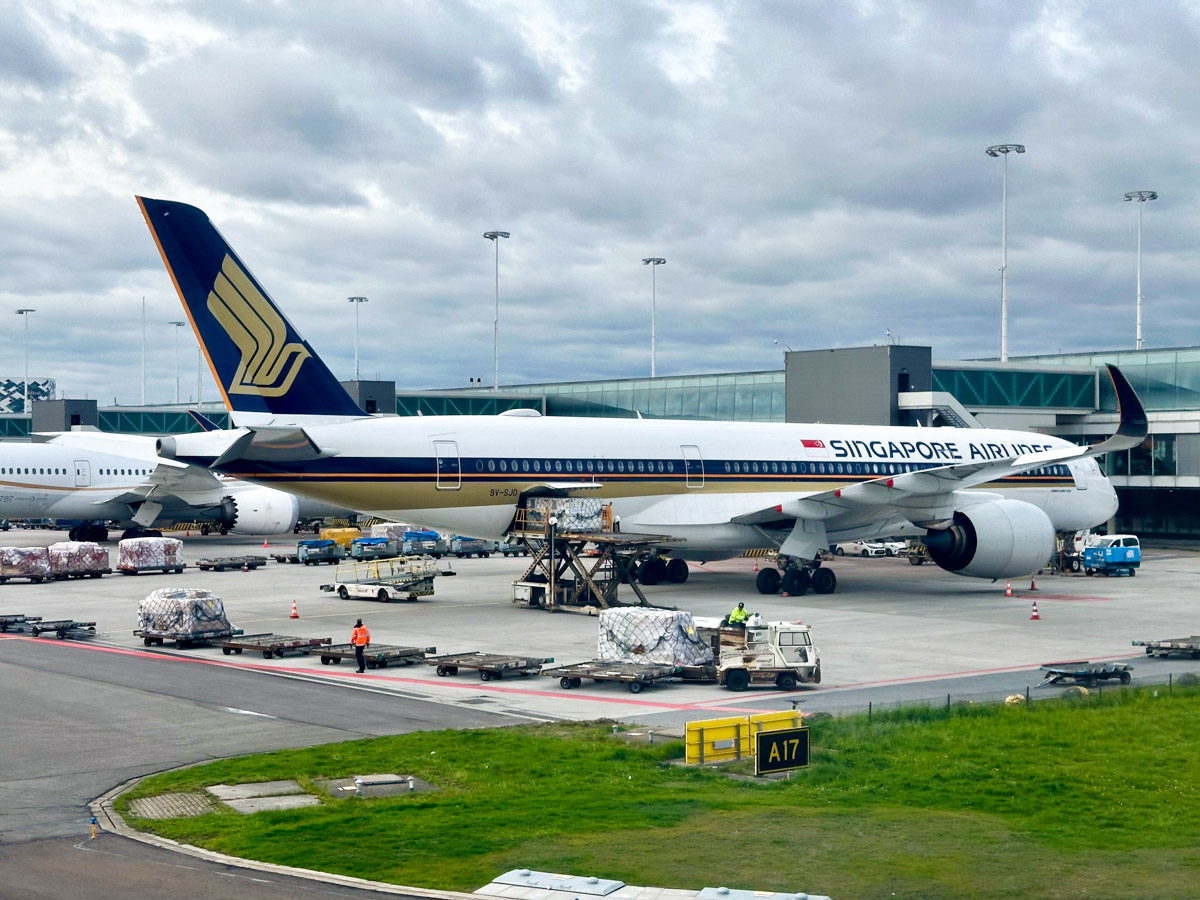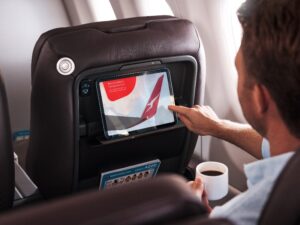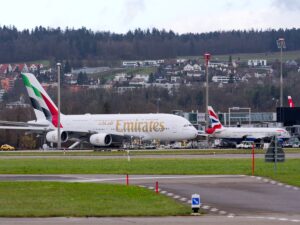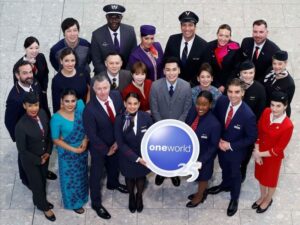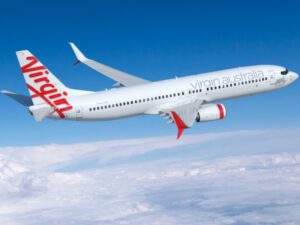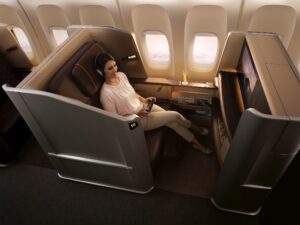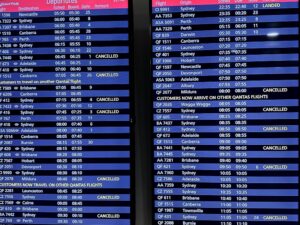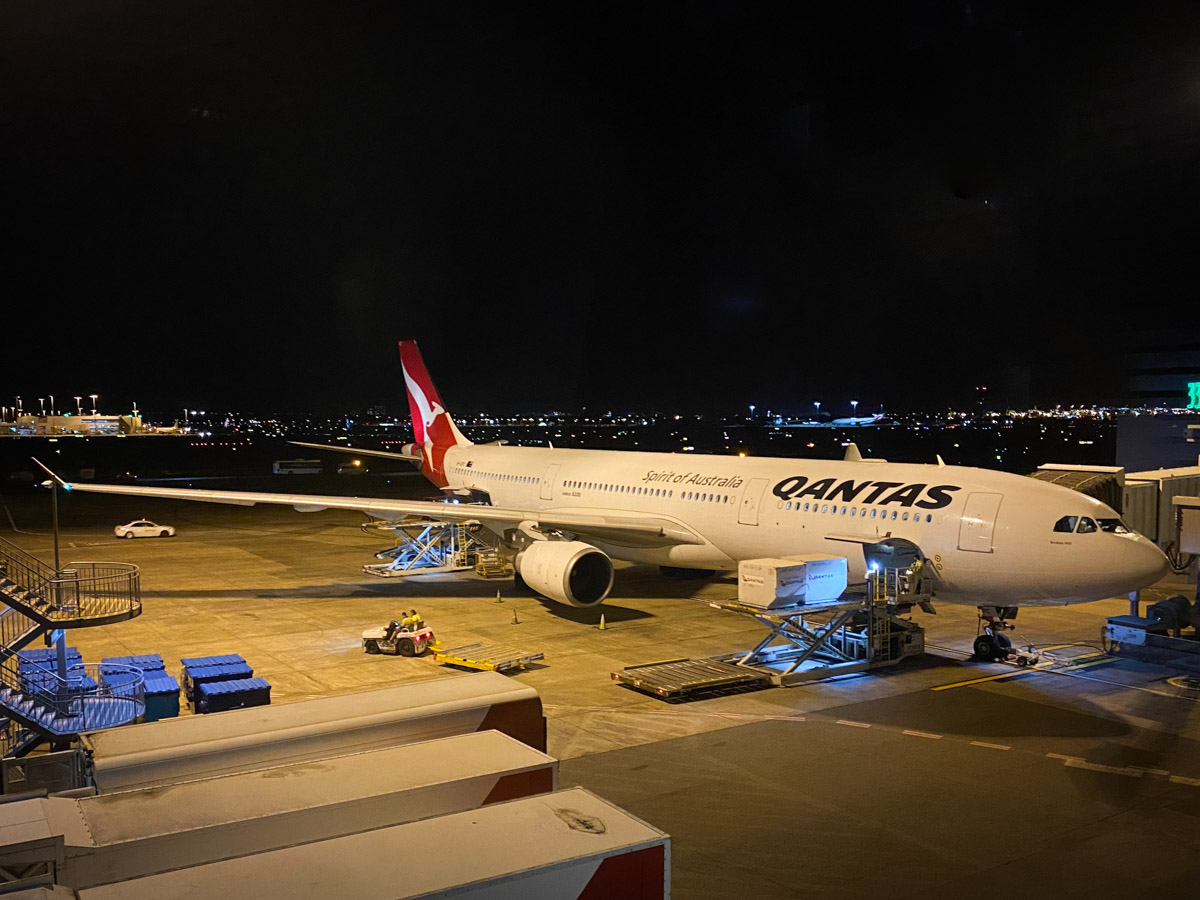
Airport curfews restrict night-time airline operations and can cause havoc for passengers if there is a delay.
So, what exactly are they, which airports have them, and how do curfews affect airlines and their passengers?
Contents
What are curfews?
Airport curfews place restrictions on aircraft movements during certain hours – usually late at night and early in the morning. Planes are not allowed to take off or land at an airport during curfew hours, although there are occasionally exceptions.
Curfews exist primarily to protect residents living near major airports from aircraft noise during the night. But changes to curfews are often politically motivated.
Which airports have curfews?
Many airports – especially major international airports – allow 24/7 aircraft movements. The airports that do impose curfews are generally located near built-up residential areas.
There are only four Australian airports with curfews in place: Sydney, Adelaide, Gold Coast and Essendon Airport in Melbourne. (Melbourne’s Tullamarine International Airport does not have a curfew.)
Some examples of overseas airports with curfews include London Heathrow, Frankfurt, Tokyo Narita and Wellington. The exact curfew hours and restrictions vary between airports.

Which flights can take off and land during curfew hours?
Some aircraft are exempt from curfews. In the case of Sydney Airport, freighter planes including the BAe-146 may use the airport during the night. There are also exceptions for emergency services and some private aircraft.
In Australia, passenger flights can request special dispensation from the Department of Infrastructure, Transport, Regional Development and Communications to break curfew. This permission is rarely given, but is occasionally when required for safety or security reasons.
Dispensations could also be given if extreme weather has disrupted an airport’s operations earlier in the day. But this is rare, and it’s usually granted on an airport-wide basis for a limited period of time.
Although Sydney’s curfew runs from 11pm to 6am, selected commercial flights may land during a shoulder period of 5-6am. This permission is given to specific flights that are impacted by curfews at the origin airport, including QF2 and BA15 arriving from London Heathrow via Singapore during the IATA northern winter period.

The Australian government can issue heavy fines of up to $1.1 million to airlines that breach curfew restrictions.
What are the implications for airline passengers?
Airline passengers are impacted by airport curfews in many ways – and few are positive.
Airport curfews can turn a small delay into a major disruption. If an inbound flight is late, it cannot land after the curfew takes effect and will usually have to divert to another airport. And if a departing flight fails to get taxi clearance before a night curfew takes effect, it won’t be able to leave until the next morning.
This can cause serious disruptions if multiple flights are delayed, for example during weather events.
They also leave passengers with less choice of flights. In the case of Sydney, the 11pm curfew makes it unviable for some airlines to operate. When Virgin Australia launched its first route to Hong Kong last decade, for example, Sydney was ruled out because the airline’s slot times in Hong Kong meant a midnight departure from Australia would be necessary. Virgin chose Melbourne instead.
The curfew at Adelaide Airport is also the reason why Qatar Airways’ flight from Doha to Adelaide via Melbourne currently sits at Melbourne Airport overnight, making it a very unattractive flight for passengers.
Indeed, the Sydney Airport curfew means there are significantly fewer redeye departures compared to Melbourne.
Dozens of overnight flights depart Melbourne around midnight to destinations across Asia and New Zealand. By comparison, Sydney Airport has just a handful of redeye departures to Asia and none to New Zealand. There’s a reason for this. An overnight flight from Sydney to Singapore that departs before the curfew would land at a very unattractive time – around 3am.
No curfew for Western Sydney Airport
When it opens next year, the new Western Sydney Airport will not have a curfew. This will make the airport more attractive to some operators.
For example, Singapore Airlines has already said it will fly to Western Sydney. It will most likely run a daytime flight from Singapore to Western Sydney, then turn the plane around for a departure back to Singapore around midnight.
